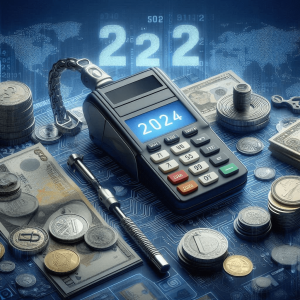- 7 minutes read
Why AML Regulations Are Necessary For The Cryptocurrency Landscape
Once considered a source for high-risk countries like Iran and North Korea to get around sanctions, Cryptocurrency space is now a hub for mainstream hackers and money launderers. With an exponential increase in accessibility through unique technology, along with the anonymous nature of transactions, it has become a lucrative avenue for money laundering and terror financing. According to a study by Chainalysis, the total cryptocurrency laundered globally in 2022 amounted to US$23.8 billion, which meant a rise from US$14.2 billion in 2021 and US$8.5 billion in 2020. These staggering numbers show that the regulators still have a long way to go in making the Crypto space safe and crime-free.

The cryptocurrency industry is prone to financial crime for many reasons. Decentralized finance exchanges have seen a rise in cases of hacking, where hackers steal currency. Even when everything gets recorded on the blockchain, criminals have found loopholes to keep their accounts free from suspicion. Cryptocurrency mixers or tumblers mix transactions to make them a part of a large number of transactions. This makes it practically impossible to trace the origin of these transactions and hence mixers become an easy avenue for financial crimes. Many Over-The-Counter (OTC) crypto-to-fiat exchanges are also being used to convert illicit funds to physical currency.
Taking cognizance of these loopholes, regulatory authorities around the world have acted to prevent these crimes. Under the Prevention of Money Laundering Act 2002, the Indian Government made the KYC process mandatory for all crypto exchanges and published specific guidelines to closely monitor and report suspicious transactions exceeding 1 Mn INR. As for the US government which planted its jurisdictional flag from the early days of crypto, the FinCEN (Financial Crimes Enforcement Network, U.S. Treasury) requires crypto mixers and DeFi services to register themselves and comply with the AML laws.
Despite continuous efforts from regulators, compliance in this industry is not free from obstacles. The global nature of cryptocurrency and DeFi transactions allows easy escape from regulations at the time of cross-border transactions as different nations have different levels of scrutiny. This makes the customer onboarding process for Crypto exchange even more cumbersome as more steps get added for detailed verification and conversion rates get hampered in the process.
Interestingly, the backbone of the crypto industry, blockchain technology, is starting to get used for AML purposes which gives us hope that the essence of crypto which makes it unique and attractive for financial crimes can be used to prevent them. Despite the frictions, the regulations imposed by the authorities have mostly received positive feedback from legit crypto-related businesses. These regulations will increase investor confidence and improve the reputation of the crypto industry. Safety concerns pose a major hindrance to the adoption of cryptocurrency as an investment instrument and imposing well-implemented rules will make way for a brighter crypto landscape.
- #CryptocurrencyCrime
- #MoneyLaunderingRisk
- #CryptocurrencyRegulation
- #FinancialCrimePrevention
- #CryptocurrencyLaundering
- #RegulatoryEfforts
- #DecentralizedFinance
- #CryptocurrencyMixers
- #OTCExchanges
- #KYCProcess
- #FinCEN
- #GlobalRegulations
- #CrossBorderTransactions
- #BlockchainForAML
- #InvestorConfidence
- #CryptoIndustryReputation
- #InvestorConfidence
- #SafetyInCryptocurrency
- #RegulatoryCompliance
- #InvestorConfidence
- #BlockchainTechnology
- #CryptocurrencyAdoption
- #AMLCompliance
- #BrighterCryptoFuture






